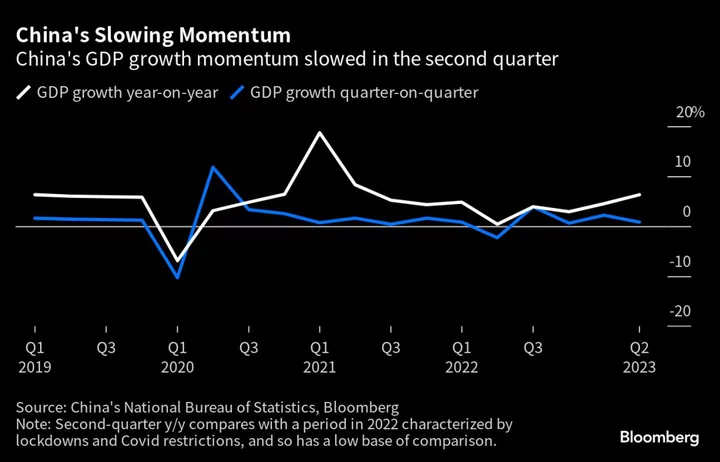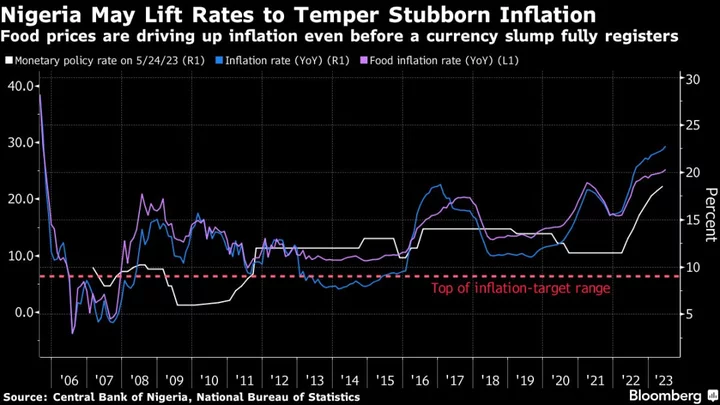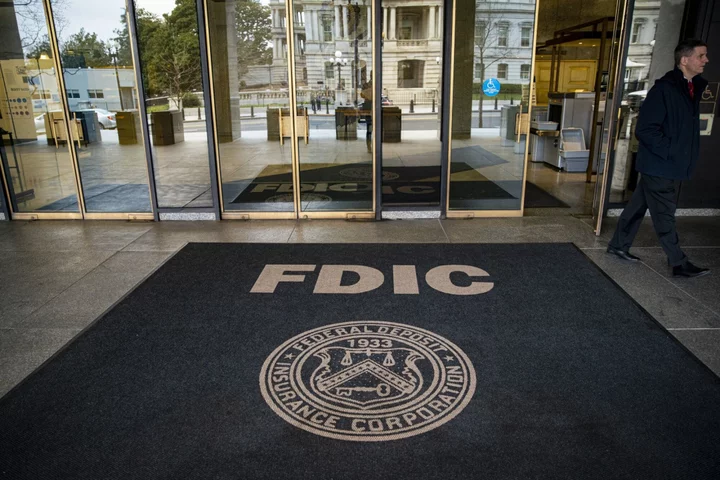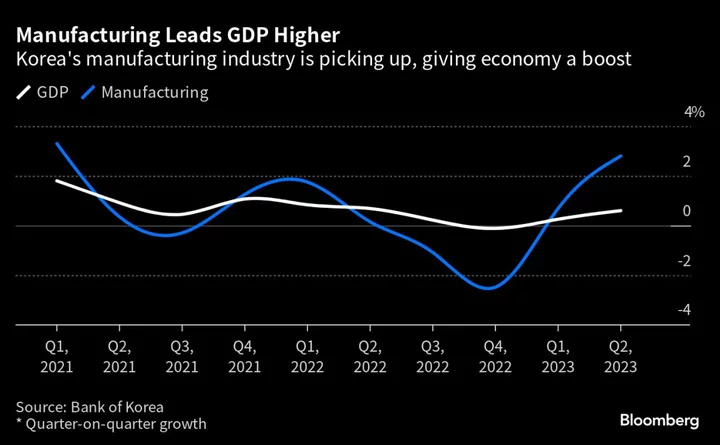
China’s ‘Dovish’ Politburo Signals Rate Cuts, Property Easing
China will likely keep cutting interest rates, speed up the issuance of infrastructure bonds and loosen more property
2023-07-25 13:45

UBS to Pay $387 Million in Credit Suisse-Tied Archegos Fines
UBS Group AG will pay a total of about $387 million in fines related to misconduct by Credit
2023-07-25 13:28

Human-induced climate crisis responsible for killer heatwaves sweeping planet, scientists say
Human-induced climate change is responsible for the historic heatwaves sweeping the planet from China to the United States, scientists have found. The research conducted by World Weather Attribution (WWA), which was released on Tuesday, says the record-shattering heat in Europe and the US would have been almost “impossible” in a world without global heating. The researchers, who analysed records in all three continents, said the likelihood of extreme heat in China, which recently recorded its highest-ever temperature at 52.2C, is now 50 times more likely due to the climate crisis. The researchers evaluated the role of climate crisis in these extreme heat events using peer-reviewed methods, weather station data of the hottest days in July, and computer models. It is already known that planet-heating greenhouse gas emissions have increased the global average temperature by 1.2C, which, in turn, is making heatwaves more frequent and extreme. The WWA study found that the heatwaves like the ones currently persisting now have a probability of occurring approximately once every 15 years in the US and Mexico region, once every 10 years in Southern Europe, and once every five years in China due to increased global average temperatures. However, without the human-induced climate crisis, these heat events would have been extremely rare. In China, such a heatwave would have been about a 1-in-250-year event, while the maximum heat experienced in the US and Mexico region and Southern Europe would have been “virtually impossible”. The climate crisis did not just play a role in the occurrence of the heatwave, but also made the temperatures hotter than they would have been with natural phenomenon like the El Nino. The European heatwave was 2.5C hotter, the North American heatwave was 2C hotter, and the heatwave in China was 1C hotter due to the human-induced climate crisis, the study notes. Researchers who were part of the study said the stronger impact of the climate crisis on the US and Europe is a result of a complex relationship between global and regional factors. Europe is heating faster than the global average, earlier studies have shown. Scientists said it’s because the impact of the climate crisis isn’t even worldwide. “Once again, our study shows the significant impact of the rapid rate of warming on local temperatures in Europe. It underscores the urgent necessity for Europe to continuously take adaptation and mitigation measures,” Sjoukje Philip, researcher at the Royal Netherlands Meteorological Institute, and one of the researchers of the study, said. “The planet isn’t warming evenly,” Ms Philip adds. “Climate scientists are working to understand the complex relationships between increasing global and regional average temperatures.” Other scientists have also largely attributed the recent heat events, including the ones in July in the northern hemisphere and the marine heatwaves, to the climate crisis. Earlier, WWA researchers also analysed the April heatwave in a dozen Asian countries, including India, China and Thailand as well as the 2022 heat events in the UK which were found to be made “ten times more likely” due to the climate crisis”. Recently the Met Office also said the reason behind the UK’s hottest-ever June was also the climate crisis. The heatwaves have caused severe impacts, with deadly wildfires burning in Greece and Canada, and heat-related illnesses and fatalities reported in several countries. In the US alone, over 200 people died due to the extreme heat, and Spain, Italy, Greece, Cyprus, Algeria, and China also reported heat-related deaths and a surge in hospitalisations. Last year’s heat in Europe contributed to the deaths of over 61,000 people, a recent study found. The study warned that unless there is a rapid reduction in greenhouse gas emissions and a shift away from fossil fuels, heatwaves will become even more common and severe in the future. If the global average temperature rise goes up by 2C, a limit that is expected to be breached in the next 30 years if greenhouse gas emissions continue to increase the way they are, there would be a probability of experiencing heatwaves like the one currently ongoing every two to five years. “The result of this attribution study is not surprising. The world hasn’t stopped burning fossil fuels, the climate continues to warm and heatwaves continue to become more extreme. It is that simple,” Friederike Otto, senior lecturer in climate science at Imperial College London and co-founder of WWA said. However, she added that these heatwaves are “not evidence of ‘runaway warming’ or ‘climate collapse”. “We still have time to secure a safe and healthy future, but we urgently need to stop burning fossil fuels and invest in decreasing vulnerability.” “If we do not, tens of thousands of people will keep dying from heat-related causes each year. It is absolutely critical that governments legislate fossil fuel phase out at this year’s Cop climate conference.” Read More What is driving the record-breaking global heatwaves across three continents? Why is there no UK heatwave as Europe swelters during Charon? 61,000 dead: The shocking toll from extreme heatwaves that hit Europe last summer revealed UK rescue flights for tourists fleeing ‘out of control’ wildfires on Rhodes and Corfu Weather forecast for Greece as wildfires rage and second heatwave hits ‘Weak tea’: G20 fails to agree on cutting down fossil fuels
2023-07-25 13:18

Nigeria Rate Decision Will Test Central Bank Autonomy
The Central Bank of Nigeria’s first interest rate decision since Godwin Emefiele’s removal as governor will be a
2023-07-25 13:18

Christian Nonprofit Ditches Barclays Over Oil and Gas Financing
Christian Aid, a British nonprofit, announced that it will no longer bank with Barclays Plc due to the
2023-07-25 13:16

China’s Markets Throw Off Gloom for Now as Xi Offers Lifeline
For the day at least, the optimists are driving China’s markets on bets Beijing is finally adopting a
2023-07-25 12:55

China Envoys Will Be First Visitors to North Korea Since Covid
Envoys from China are set to become the first foreign delegation to North Korea since the pandemic started,
2023-07-25 11:58

Rhodes fires: Hundreds back in UK after 'traumatic' Rhodes fires
Britons have been flying into airports including Gatwick, Heathrow, Stansted, Birmingham and Bristol.
2023-07-25 11:27

China Developers Jump Most in Seven Months on Politburo Pledge
Chinese developer shares are bouncing back after the country’s top leadership pledged to optimize and adjust property policies
2023-07-25 11:24

FDIC Warns Banks Over Errors in Reporting Uninsured Deposits
The Federal Deposit Insurance Corp. said some US banks incorrectly reported the amount of their uninsured deposits after
2023-07-25 10:55

The problem with X? Meta, Microsoft, hundreds more own trademarks to new Twitter name
By Blake Brittain Billionaire Elon Musk's decision to rebrand Twitter as X could be complicated legally: companies including
2023-07-25 10:50

South Korea Growth Outlook Cloudy Even as GDP Tops Consensus
South Korea’s economic growth accelerated a tad more than expected in the second quarter, with much of the
2023-07-25 10:22
